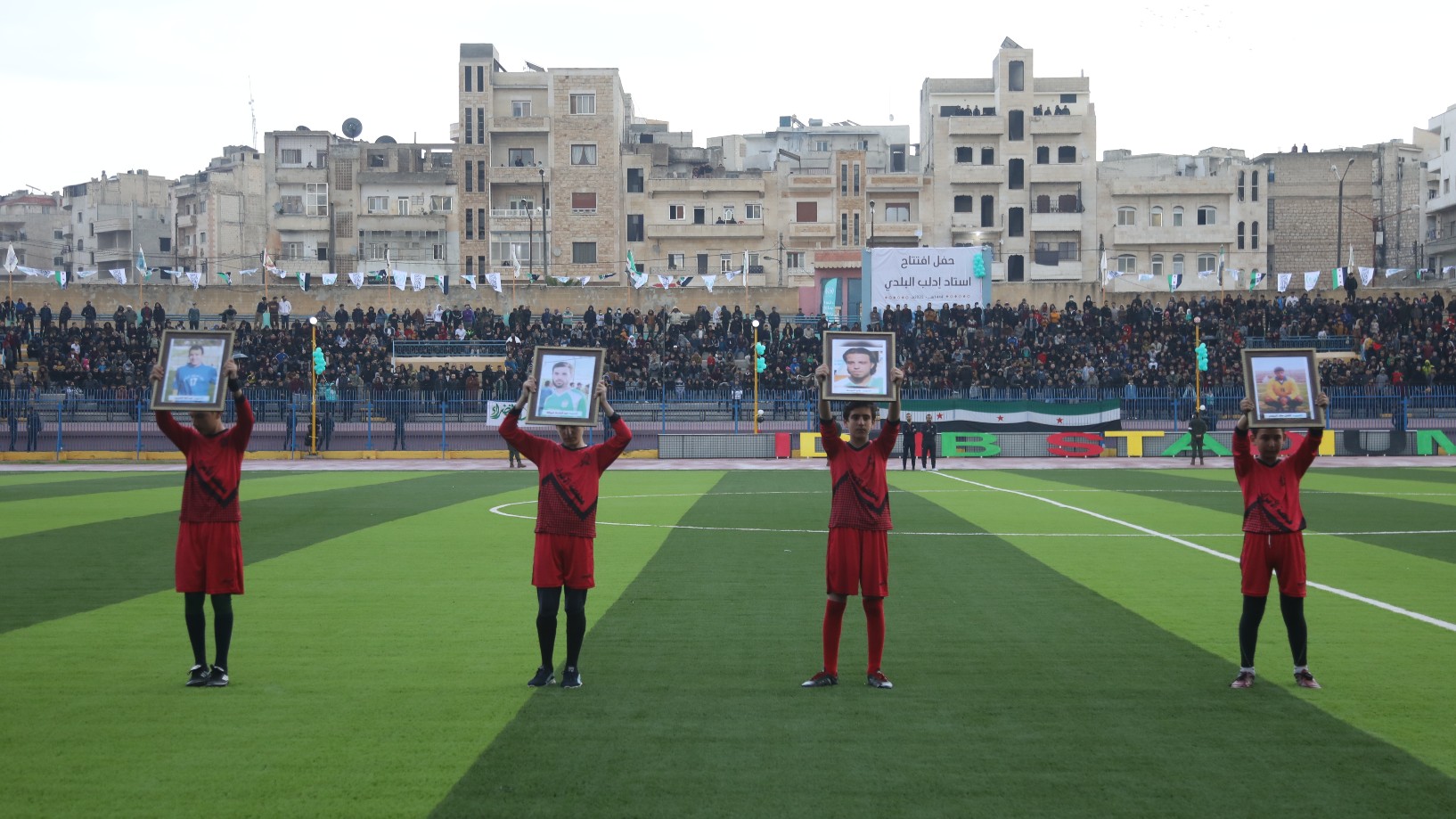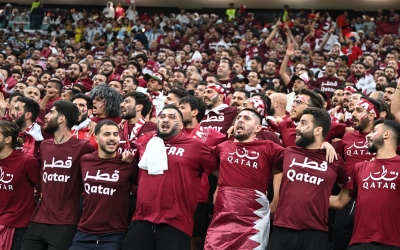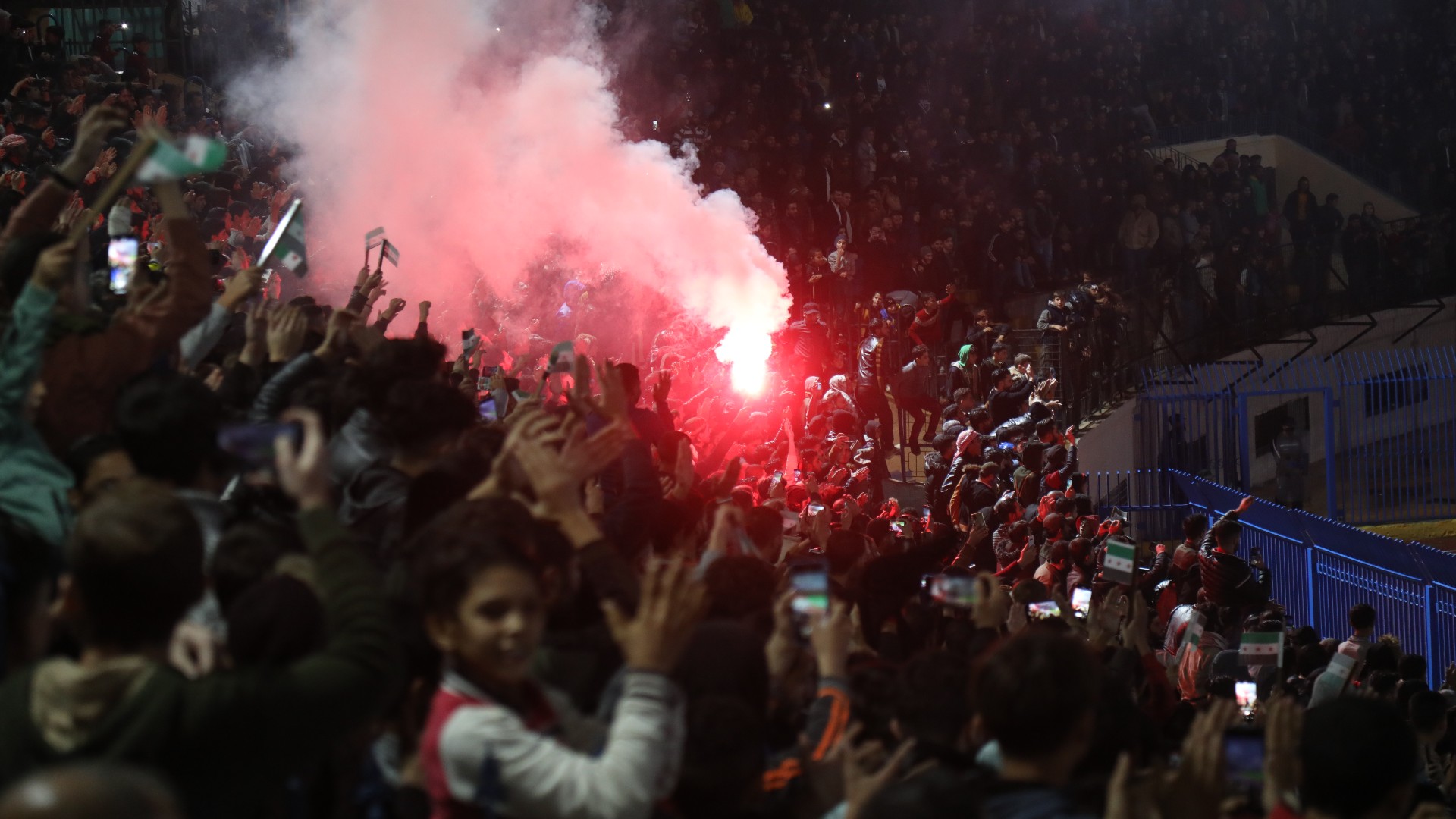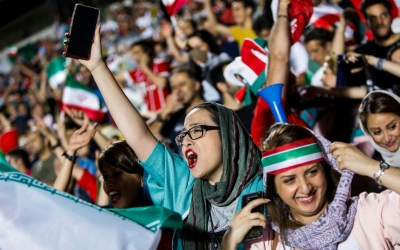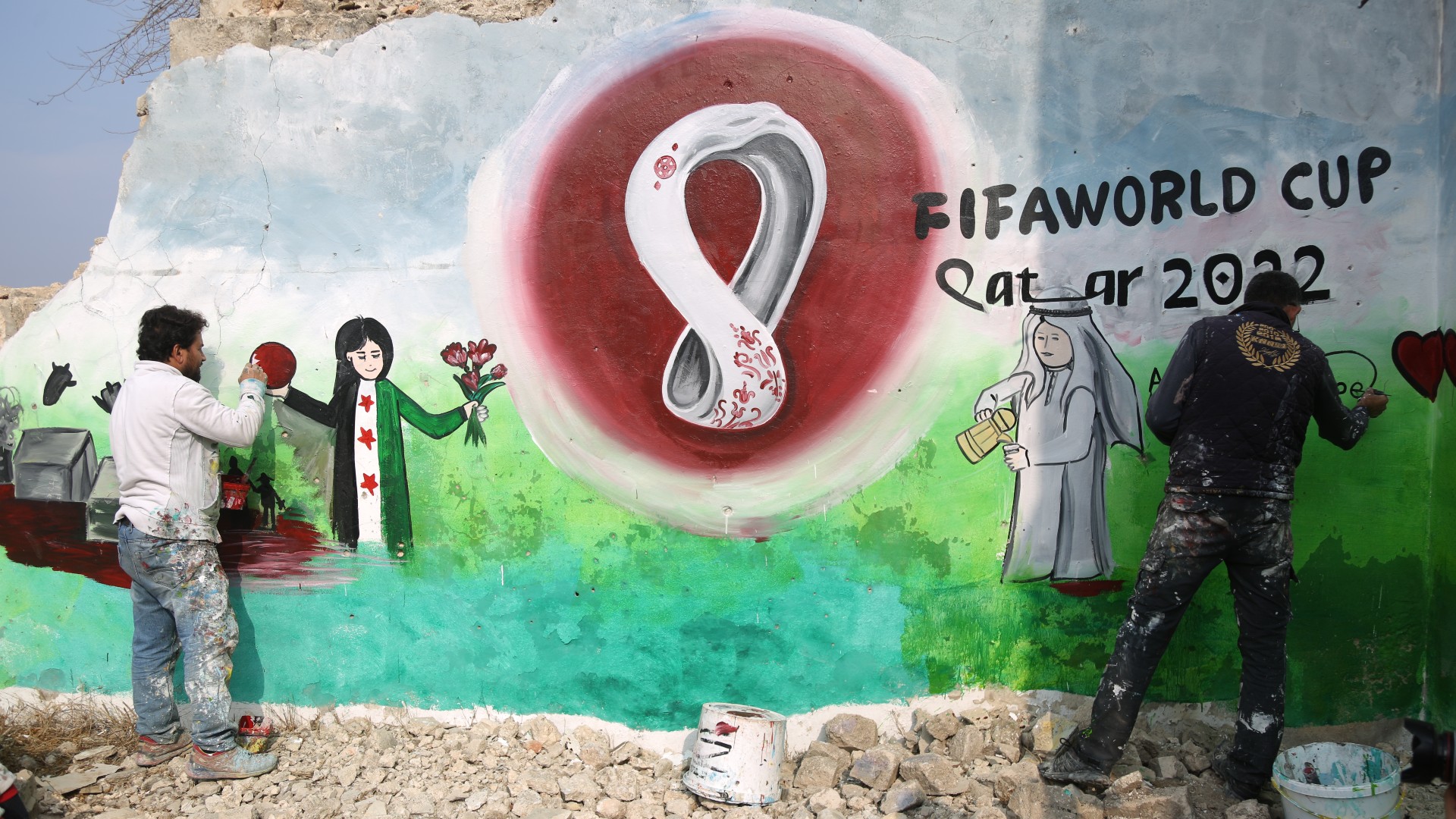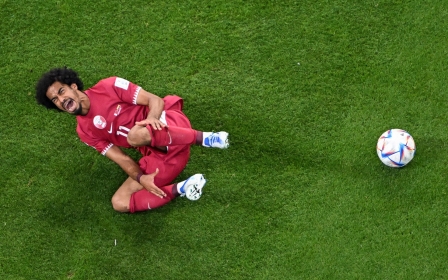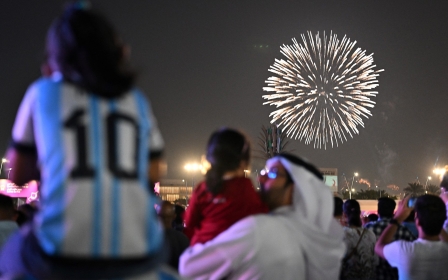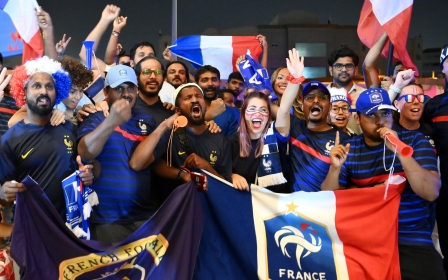World Cup 2022: Iran's losses will be cheered by Syria's displaced

When Iran kick off their World Cup campaign against England on Monday, every touch of the ball will be jeered and hissed at by Syria's internally displaced.
Fixtures against western nations used to be a celebratory affair in much of Syria, uniting the country's disparate religious and sectarian groups.
But since the 2011 Arab Spring uprising and the subsequent crackdown by the Syrian government, allegiances have shifted and love of the beautiful game has fallen down the list of priorities.
Syria descended into war after anti-government protests erupted over the rule of President Bashar al-Assad.
'This World Cup will be exceptional for several reasons, the most important of which is that it will be held in Arab land'
- Abdullah al-Saad, internally displaced Syrian
Since then, hundreds of thousands of people have been killed and vast swaths of the country ruined by fighting.
The UN estimates that 40 percent of Idlib's population of three million are IDPs that have been displaced over the course of the conflict.
Ahmed Maher, a 24-year-old who was forced to flee with his family to Idlib in 2014, said neither team was viewed positively by Syrians in the country’s IDP camps.
"Iran supported the tyrant [Assad] and along with Russia helped the regime crush our democratic hopes. But where was England in all of this?
"With all this talk of human rights they didn't do anything to help us."
'Leaky defence'
The UK, which comprises the four teams of England, Wales, Scotland and Northern Ireland, has offered safety to around 20,000 refugees fleeing Syria since the crisis erupted in 2011.
But in recent years sentiment against refugees and migrants has shifted, with the UK mulling plans to deport those who cross into the country by irregular means to offshore detention centres in Rwanda.
"We [Syrians] may be living in camps but we also have the internet: [British politicians and right-wing media] demonise us on a regular basis," Maher said.
"We are praying the Iranians have a leaky defence, and anyone but them wins, but we also won't be supporting England to do well."
Iran, England, the US and Wales make up the World Cup's Group B. After its game with England, Iran will face Wales on 25 November before its high-profile showdown with the US on 29 November.
Those matches will carry major geopolitical symbolism.
Western efforts to revive the Obama-era Iran nuclear deal - which limited the Islamic Republic's nuclear programme in exchange for economic sanctions relief - have fallen apart amid Tehran's crackdown on protesters and its backing of Russia.
Iran has denied directly helping the Russian war effort despite mounting evidence to the contrary.
US officials say Iranian military personnel are on the ground in Crimea to assist Russian fighters operating Iranian drones.
Shattered dreams
Several residents in Idlib told MEE that they wished they could have been in Doha to watch the games in person, but welcomed Fifa's decision to expel Russia from the tournament.
Abdullah al-Saad, 25, who was displaced from the city of Maarat al-Numan and is currently living in northern Syria, said a combination of restrictions on movement, a lack of finances and the inability to obtain travel documents meant he couldn't realise his dreams and be in the Gulf state.
"I dreamt of attending the World Cup, especially since an Arab country is playing host, but the war in my country and the difficulties with obtaining identification papers such as a passport, means I'll have to watch the games on TV with my friends," he said.
'I will not let the joy of football evade me, even though I live in a tent and don't have a TV
- Ali al-Madi, internally displaced Syrian
Qatar has been accused by human rights groups of using the tournament to distract from abuses at home and abroad. Despite this, Russia's hosting of the 2018 World Cup was largely seen as a success, with the New York Times asking if, in fact, it was the "greatest" of all tournaments.
Saad rejoiced at Russia's suspension and lamented that Moscow has been among the top political, economic and military backers of the government in Damascus since the start of the conflict in Syria in 2011 and maintains a military presence at its Hmeimim air base, near the city of Latakia.
Russia's military intervention was crucial in turning the tide for Assad and giving him the upper hand in the conflict after his forces had lost large areas of territory to rebel and armed groups.
"This World Cup will be exceptional for several reasons, the most important of which is that it will be held on Arab land, and the other is the absence of the Russian team," said Saad.
"Russia has committed crimes against the Syrian people for eight years and recently against the Ukrainian people - so we're happy they're not present," he added.
'Separating sport from politics'
For Abdullah, the fact that five countries were representing the Middle East was something to be celebrated, but support for Iran would be hard to come by in Idlib's camps.
Iran, one of Assad's main allies in the conflict, has always denied sending forces to fight in the brutal conflict, saying it only has military advisers there. But Shia militias, along with Russian mercenaries, have played an instrumental role in the conflict.
"I will support the Qatar national team in the World Cup because it is a team that will be able to move forward in this tournament due to its preparations and what it has achieved in the recent past as a champion of the Asian Cup in 2019 and its third place in the FIFA Arab Cup 2021," Abdullah said.
On Saturday, over 300 children, some on wheelchairs and crutches, and carrying footballs, masks and flags, marched through Idlib neighbourhoods to organise their own football world cup to remind the globe about the horrors of the Syrian war.
The excited children took part in the opening ceremony at the municipal stadium in Idlib, some wearing the jerseys of this year’s World Cup teams.
Their 32 squads correspond to the nations that have qualified for the World Cup, which started on Sunday in Qatar, and their local competition opened with a match between the host country and Ecuador, reflecting the official schedule.
"I will not let the joy of football evade me, even though I live in a tent and don't have a TV. I will follow the World Cup matches on my mobile," said Ali al-Madi, a displaced civilian from the city of Kafr Zita, north of Hama, who lives in the Atmah IDP camp on the Syrian-Turkish border.
Ali was a local football player in Kafr Zita before he was displaced, and has passionately followed the French national team. Despite this, he will be supporting the Arab teams that qualified for the World Cup finals.
"We always hear that we must separate sports and politics, but this is wrong. I won't hide my happiness over the exclusion of the Russian national team - a country that was the reason I left my city and ended my career as a football player," Ali said.
"At the same time, how can I not support the Qatari national team? It's a team that represents the country that has always stood with the aspirations of the Syrian people."
As the World Cup plays out, the United Nations Human Rights Council is expected to hold a special session on Thursday to discuss Iran's domestic treatment of protesters. That meeting could put the global focus on the Islamic Republic's human rights record ahead of its football showdown with the US.
Middle East Eye propose une couverture et une analyse indépendantes et incomparables du Moyen-Orient, de l’Afrique du Nord et d’autres régions du monde. Pour en savoir plus sur la reprise de ce contenu et les frais qui s’appliquent, veuillez remplir ce formulaire [en anglais]. Pour en savoir plus sur MEE, cliquez ici [en anglais].


